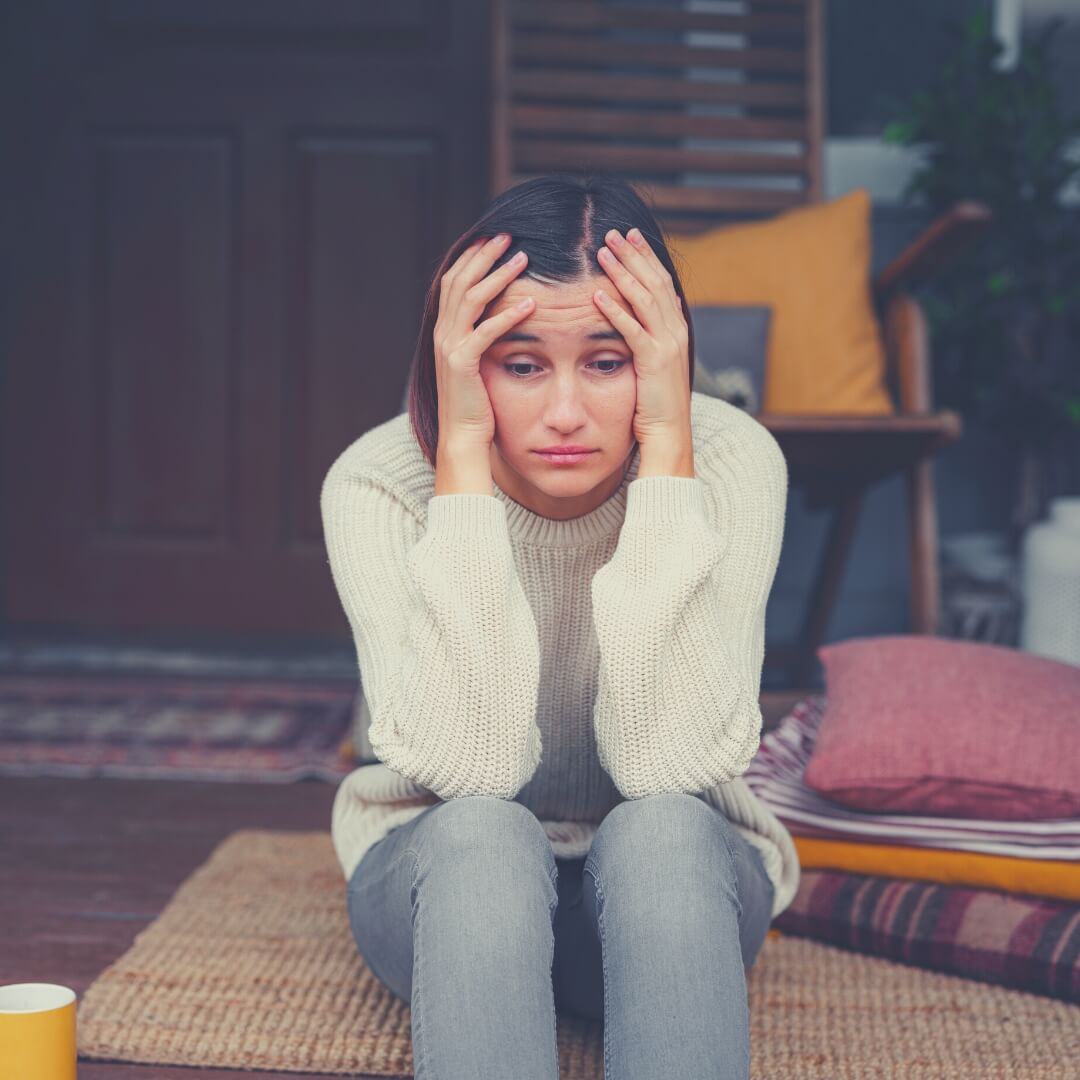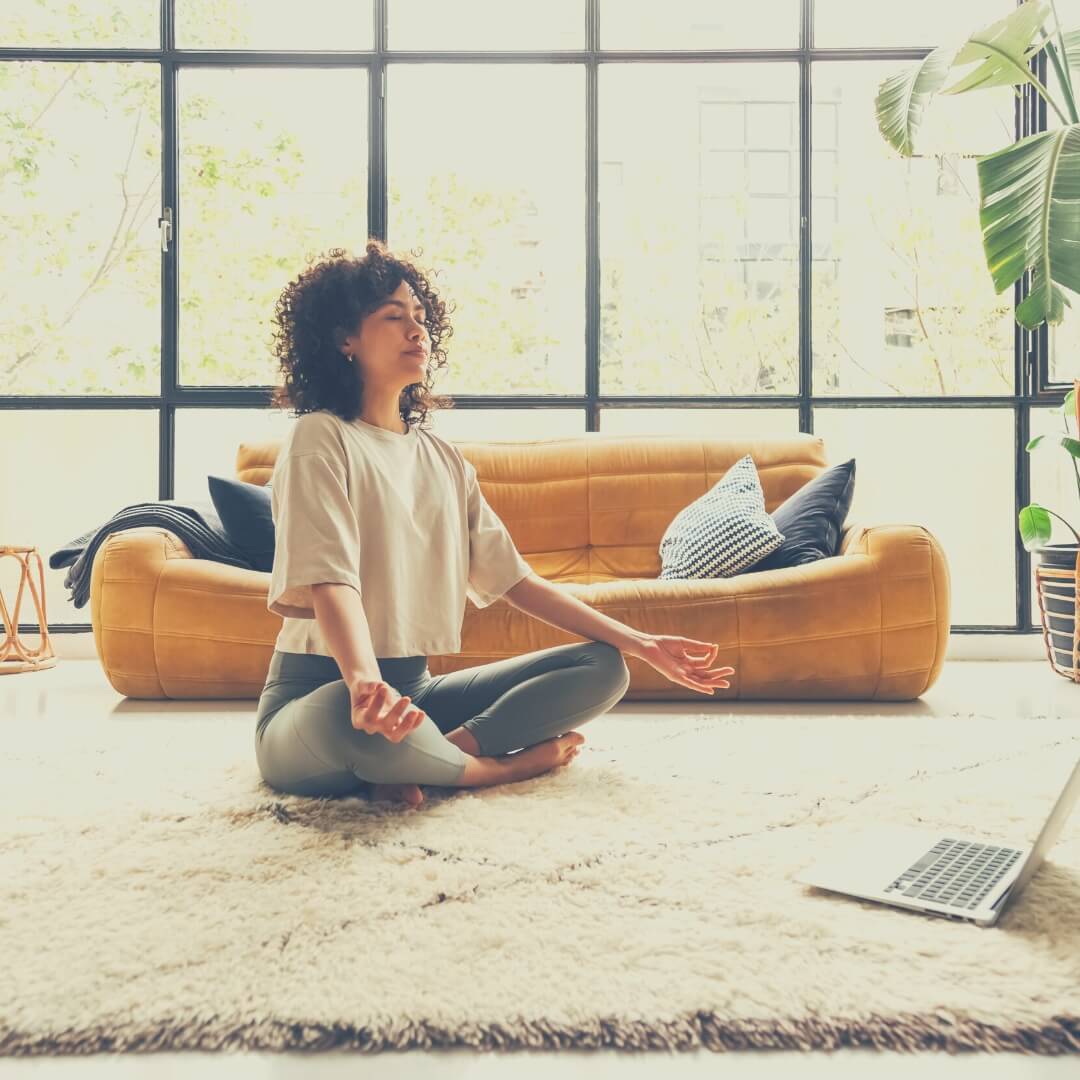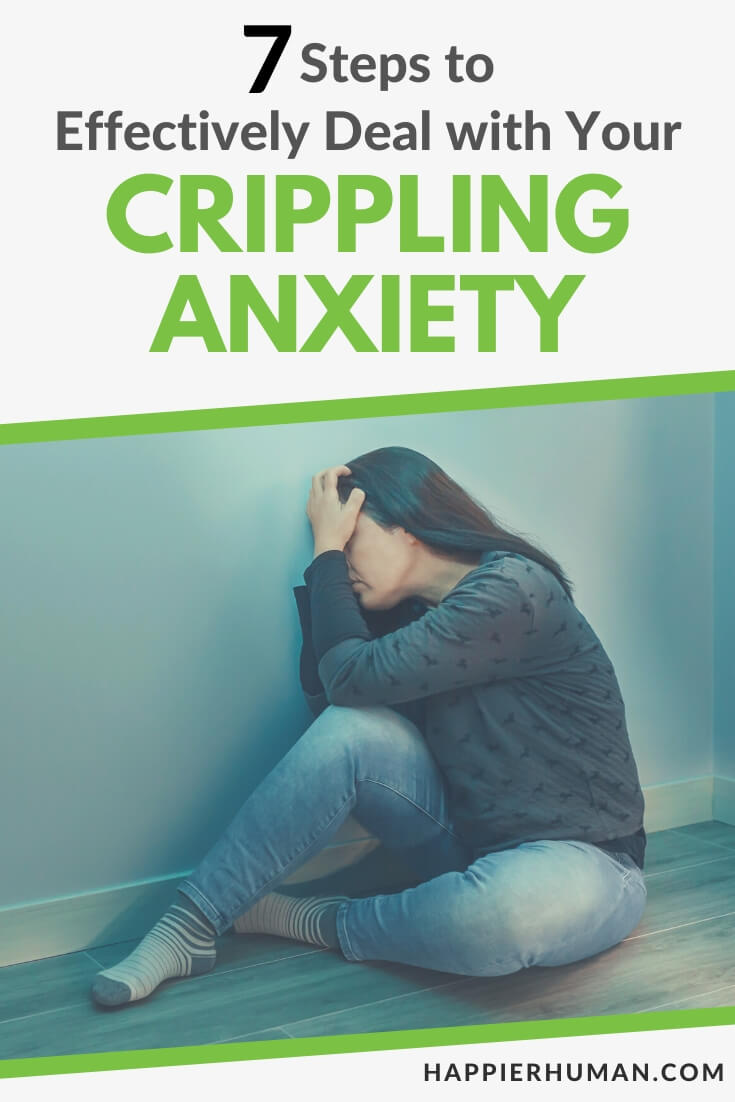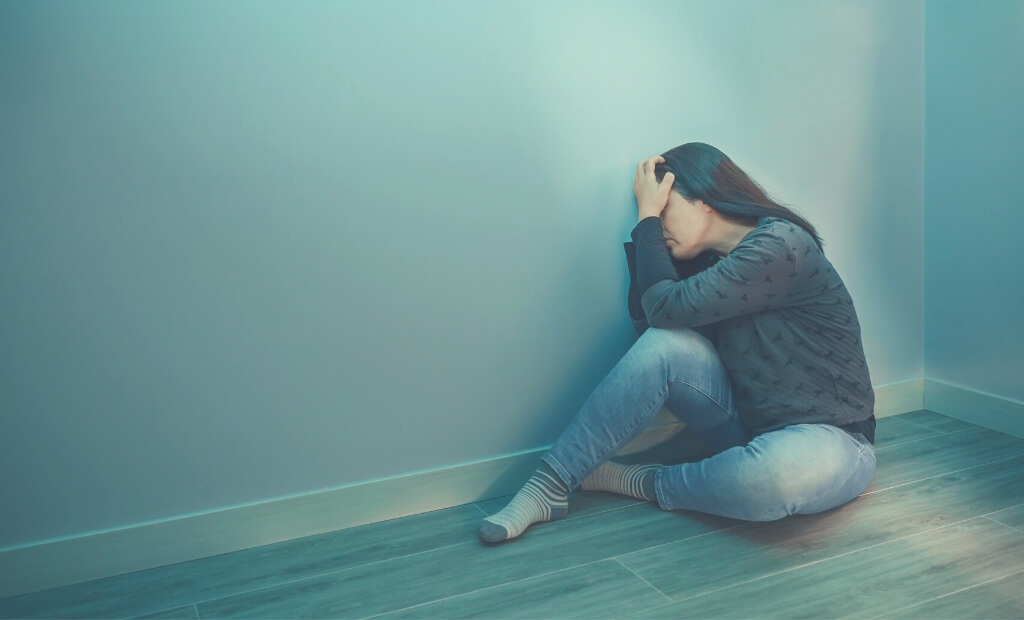Your heart races, there’s a drumming in your ears, and you feel sick to your stomach. Perhaps you even struggle to breathe, or you feel pins and needles lock your limbs in place as you begin feeling totally overwhelmed.
No, you haven’t been swallowed by a boa constrictor; instead, it’s crippling anxiety in its most dreadful form.
What is similar to a snake is how quickly and without warning anxiety can strike. Crippling anxiety is the worst form of anxiety, and it far exceeds a basic “I’m worried about xx” sensation that you may feel most days.
You’ve likely considered medication, and perhaps you are already popping a pill as soon as you feel the “python’s jaws” close on your mind, but you know it’s not the best way to cope.
Fortunately, I’ve got you covered with the best ways to identify and deal with those debilitating anxiety feelings so you can lead a life that’s not trapped in doubt, fear, and confusion.
It’s time to let anxiety slither away.
What Is Crippling Anxiety?
Anxiety is a fairly normal aspect of life. We get anxious when we enter a heightened state of awareness or preparation. In our primitive past, anxiety was designed to help you prepare to outrun a tiger or wrestle a crocodile.
Today, those beasts are no longer physically challenging us, but we face even worse in the form of stress related to jobs, relationships, money, health, and safety.
When your body can’t release that anxiety in a natural way, such as by slaying the beast, you end up with a firecracker inside you that’s building pressure all the time.
This is exactly what crippling anxiety feels like. Soon, that anxious feeling, like you’re about to explode, dominates your day-to-day life, and you suffer severe anxiety-related symptoms that interfere with your life.
You’ll struggle to live a life of joy, peace, and patience when you have severe anxiety. Some of your symptoms may include lack of concentration, brain fog, irritability, sleep problems, and body aches.
But mostly, your brain becomes Grand Central Station for the worry train, and it’s always arriving, all hours of the day, non-stop.
There are a few common triggers that will overload your anxiety meter in a flash. These triggers include:
How Is Crippling Anxiety Different from Moderate/Occasional Anxiety?
So, why do some people get a little anxious and move on, when you feel like your head’s about to explode if you can’t find a release? What makes crippling anxiety so different from normal anxiety or general anxiety? Let’s find out.
As with most psychological states and mental conditions, a sliding scale applies. You can slide from mildly nervous on one end to utter “crawl into a hole” anxiety on the other. But debilitating anxiety, the most extreme form of anxiety, is focused on the future.
Instead of merely feeling uncertain while speaking in public, you lie awake at night, worrying about a public talk you have to give in six weeks.
Your imagination jumps in and makes matters worse by suggesting all the ways that things can go wrong in the future. The “what ifs” demand your full attention and you can’t even begin to think of a way out of the current situation.
Instead, you are filled with apprehensive expectations—you anticipate that the worst will happen.
Moderate or occasional anxiety is a milder form of anxiety, where you become nervous about things that are happening right now or in the next 5–10 minutes.
Anxiety disorders are diagnosable, and knowing which form you have can help you live with hope and arm you with the tools to manage your anxiety.
A few diagnosable anxiety disorders include generalized anxiety disorder, obsessive compulsive disorder, phobias, and PTSD.
Signs that You Have Crippling Anxiety
How do you know whether your anxious feelings are just a passing thing or if you actually have crippling anxiety?
Most people would say that you simply know, but there are signs that tell you whether you are on the edge with your anxiety trying to push you over.
You have crippling anxiety when you have these signs. You feel:
Potential Damaging Side Effects of Having Crippling Anxiety
There are serious side effects to being crippled by anxiety. Firstly, you feel like you can’t continue or that you need to hide in a hole. The world is an unsafe place for you, which means you don’t trust people, and you try to go it alone all the time.
Physical symptoms can seriously affect your health, and you’re likely to suffer from high blood pressure, have a heart condition, develop cancer, or struggle with autoimmune issues when you worry your way.
On an emotional level, you probably avoid people, including your friends and family. You no longer enjoy hobbies or just chilling out. Instead, you are super vigilant, and your ability to think before reacting diminishes. You become needy, seeking reassurance from everyone.
But there is light at the end of the anxiety tunnel—you can deal with your crippling anxiety, and here are a few steps to guide you.
7 Steps for Dealing with Crippling Anxiety
When you are dealing with debilitating anxiety, a solution or steps to deal with it may seem impossible. You are so caught up in feelings of severe anxiety, so how can you add one more thing to your plate and find your way out of it?
It isn’t easy, but it is possible. It’ll take hard work and you need to commit to a process to help get your anxiety levels under control.
Remember, there is no shame in admitting that you have anxiety. How you deal with it defines it. And if you have people around you who aren’t supportive or understanding, find folks who are healthy for your mental health and surround yourself with these types of people.
Follow these step to help you deal with severe anxiety:
Step 1. Understand Your Anxiety and Its Effects
The first step to help you deal with your anxiety is to understand it. We all experience anxiety in some form in our lives, but as you know, debilitating anxiety is on the extreme end of the sliding scale.
Anxiety is way more intense for you, and that means that you feel like your whole world is collapsing on a regular (or constant) basis.

So carve out time and a safe space where you can reflect on your anxiety, symptoms, and the effects it’s had on your life.
Get a journal (that’s for your eyes only, unless you choose to share it with a trusted individual or mental health professional), and answer the following questions:
Step 2. Find What Triggers You and Improve Your Emotional Awareness
Once you are more aware of the anxiety you are dealing with (because when you are in the anxiety shark’s jaws or boa constrictor’s grip, you can’t focus), you can work on identifying your triggers and improving your emotional awareness.
In your journal, dive deeper by answering these questions:
Once you know what triggers you, you can work on avoiding these or taking the steps to deal with it so they don’t catch you off guard and set off the debilitating anxiety alarm bells.
Step 3. Find the Relaxation Technique(s) That Works Best for You
Next, it’s essential to find ways that you can relax and breathe. The best relaxation techniques (for you) will help you calm down when you are feeling stressed or highly anxious.
A 2017 study found that there is evidence supporting the effectiveness of relaxation therapy for those with anxiety disorders.
A 2022 study has similar findings, and the study stated that relaxation techniques, like meditation, Tai chi, yoga, and relaxation imagery (visualization) can help alleviate anxiety, distress, and depression.
There are various types of relaxation methods you can try out. Do one consistently for at least two weeks to see if it benefits you before trying another technique.
Consider:
Step 4. Put Together an Anxiety Survival Kit
Another step to help you deal with severe anxiety is putting together an “anxiety survival kit.”

The kit contains items that help you feel relaxed and calm, and they can be a few of your favorite possessions, much like a toddler or child has a favorite blankie or toy that must accompany wherever they go.
In your anxiety kit, consider adding:
Step 5. Share with a Trusted Friend
You can also share your anxiety woes with someone you trust in your inner circle. Before you just unload on them, make sure the person is safe for your mental health, has the capacity to listen and focus on you, and wants the best for you.
It’s even better if you know of someone who’s had a similar experience because then they’ll just get you and what you are going through.
If you don’t have a soul friend or someone who’s your person in your life, consider seeking a support group with like-minded individuals.
Step 6. Take Care of Yourself and Make Healthy Lifestyle Changes
Self-care is essential to counteract the negative effects of debilitating anxiety. When you regularly engage in self-care you will become more aware, which helps you head off a bout of anxiety and manage the symptoms better.
Try these self-care techniques and make a few lifestyle changes to ensure you are mentally ready to face life’s challenges:
Likewise, you should also give up unhealthy habits that can worsen your anxiety. Consider:
Step 7. Seek Professional Help
Lastly, if none of these steps are helping you or your anxiety is so debilitating that you can’t even get yourself to take step 1, then seek professional help. You can only do so much by yourself, and there’s nothing wrong with you if you go see a therapist.

If you are having suicidal thoughts, using vices like drugs, porn, or alcohol to help you cope, or struggling to live your life to the fullest, then get professional help. You are not alone, and you don’t have to go at it alone either.
A mental health professional can help you develop a treatment plan that may include:
If you or a loved one are having a panic attack and need help now, don’t hesitate. Call 911 or the Substance Abuse and Mental Health Services Administration’s (SAMHSA) National Helpline – for free – on 1-800-622-4357.
Final Thoughts about Having Crippling Anxiety
Anxiety is never good for you, especially when you’re not actively taking steps to deal with it.
When that anxiety reaches boiling point, you have to find ways to manage your crippling anxiety and heal before you begin a downward spiral of bad habits and mental misery.
Know the signs of anxiety so you can alleviate pain and worry by managing your reactions to triggers. Start by reflecting on your relationship with anxiety and decide how you will detox from anxious habits so you can become a more relaxed you.
There’s no shame in facing anxiety. It’s where courage originates. Learn to find your ikigai and let go of anxiety.
And if you're looking for more articles about anxiety, be sure to check out these blog posts:
- 11 Soothing Mantras to Help You Deal with Anxiety
- 13 Simple Coping Skills for Kids with Anxiety & Stress
- 20 Grounding Techniques to Reduce Anxiety & Cope With PTSD
Finally, if you want a simple way to reduce your stress and anxiety, then try writing these 35 mindfulness journaling prompts to live more in the present moment.


